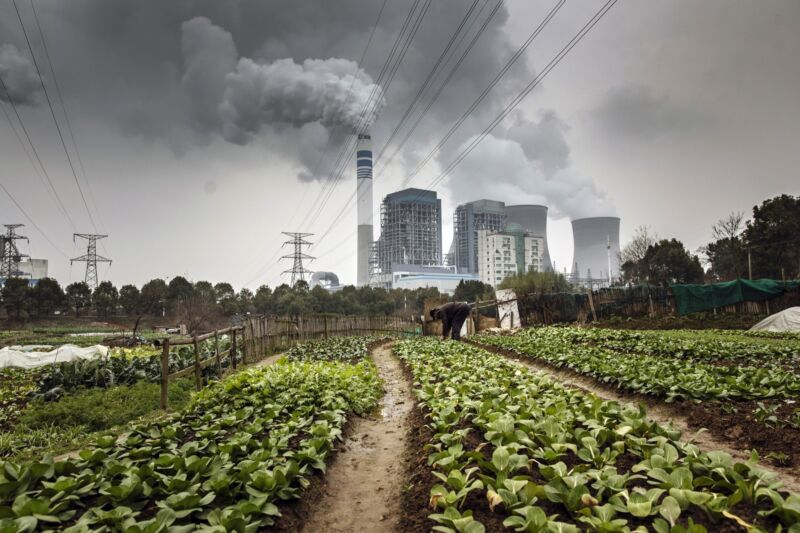
Enlarge / A man tends to vegetables in a field as emissions rise from nearby cooling towers of a coal-fired power station in Tongling, Anhui province, China, on Wednesday, Jan. 16, 2019. (credit: Qilai Shen/Bloomberg via Getty Images)
On Monday, we discussed the possibility that the coronavirus outbreak could interrupt global trade and just-in-time manufacturing, causing car makers to miss ambitious new European carbon emissions regulations. Whether that happens remains to be seen, but in the meantime, the virus has had a concrete effect on CO2, and it's surprisingly positive when seen through the lenses of climate change and air pollution.
According to a report in CarbonBrief, the disruption to China's economy has meant that the country has emitted about 25 percent less CO2 into the atmosphere over the past two weeks than it would if businesses were operating as normal. Traditionally, everything shuts in China for the Lunar New Year celebrations, then kicks back into gear a week later.
But not this year. Factories and other businesses have remained shuttered. Coal-use at power plants is at a four-year low. Oil and steel production are both lower than at any point since the Chinese economy suffered a slowdown in 2015. And domestic air travel has been seriously curtailed as the Chinese government attempts to contain the spread of the epidemic. All told, this equates to about 100 million fewer tons of CO2 in the atmosphere, or a 6 percent reduction of global emissions. Assuming that China's economy doesn't get put into overdrive to compensate, that could well mean that we see global CO2 levels remain flat or even possibly decrease slightly by the end of 2020.
No comments:
Post a Comment